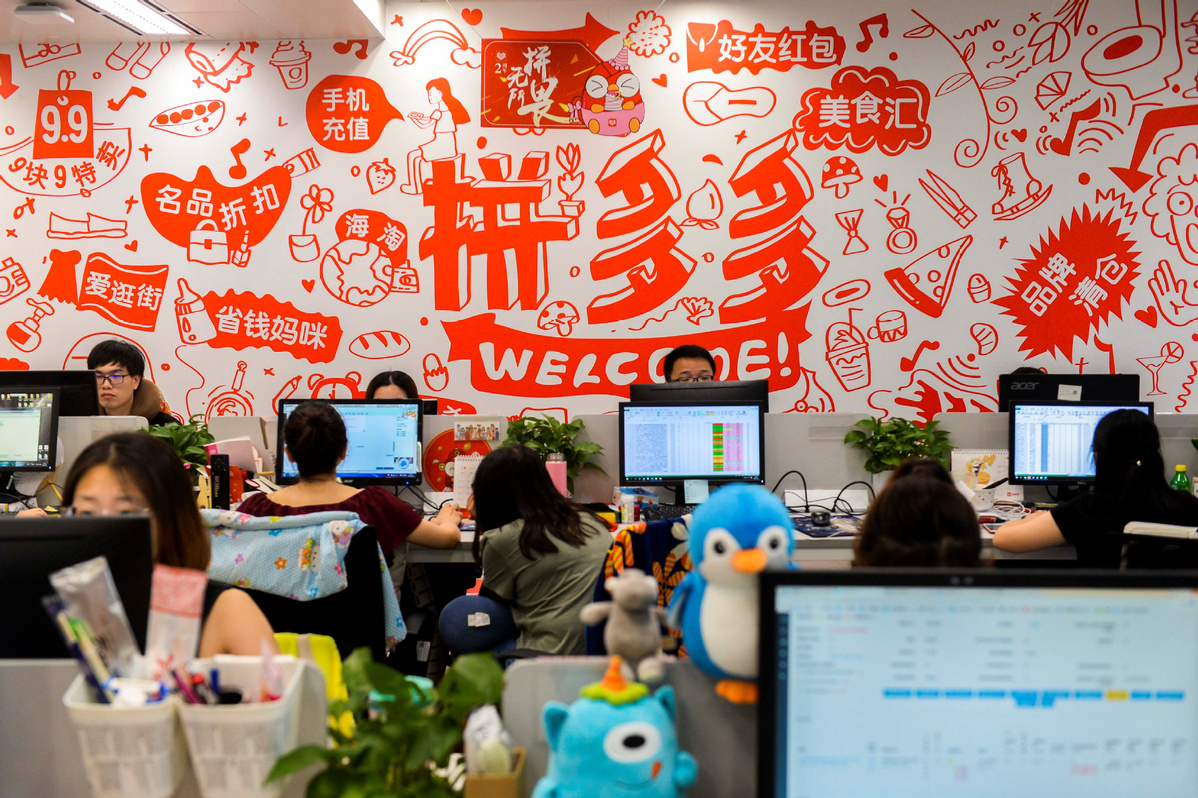
Employees are seen at their desks at the headquarters of Chinese online group discounter Pinduoduo in Shanghai, in this July 25, 2018 file photo. (Photo: Agencies)
A 23-year-old female employee of China's online group discounter Pinduoduo Inc fainted on her way home at 1:30 am on Dec 29 in Urumqi, capital of Northwest China's Xinjiang Uygur autonomous region. She later died after six hours of emergency treatment in a local hospital.
Her sudden death stirred heated debate both online and offline, with many people criticizing Pinduoduo's culture of overworking, which they say caused the worker's death. The reasons for her death are tragic, and require authoritative medical investigation.
It should be made clear "death from overwork" is not a legal term. However, this case should be a turning point for society to reflect on how to improve protection of employee rights in the digital era.
China's Labor Law and Labor Contract Law do have great focus on protecting employees' rights. However, related laws and regulations are facing increasing challenges in today's internet and digital society.
Under current regulations, employers will violate laws if they engage in any of the following three behaviors:
First, forcing employees to work beyond stipulated working hours.
Second, forcing employees to work overtime against their will.
Third, forcing employees to work overtime for free.
In the industrialization era, working hours were relatively fixed. But in the internet era, merged social and economic activities make it difficult to define fixed working times.
For example, the working hours for air crew starts when the airlines take off, which may be easy to identify. But how about other industries? How do we regulate working hours for deliverymen?
In today's digital economy era, employees may need to complete multiple tasks in a short time. For example, deliverymen must deliver a certain number of parcels in due time otherwise their pay may be cut, so they have to work overtime.
Some delivery companies sign service contracts rather than labor contracts with employees. Workers can only get payment after finishing a certain service if they signed the former. That causes some workers to work overtime to get as much payment as possible. Some delivery companies can press workers to work more intensively through algorithms, and the employees' rest time may be shortened and labor intensified. The law should clarify whether such practices are illegal.
Therefore, lawmakers should research new problems emerging in labor relations with the rapid development of internet technology. That can pave the way for legislation to adapt regulations to the digital era. Second, media reports shouldn't jump to conclusions about "death from overwork" because each case needs to be studied, and "death from overwork" is not a legal definition to hold employers accountable.
I hope the girl rests in peace, and that the case will help improve the legal protection of employees in the digital era.
Qiao Xinsheng is a professor at the law school at the Zhongnan University of Economics and Law. This is an excerpt of his interview with China Daily's Zhang Xi.


